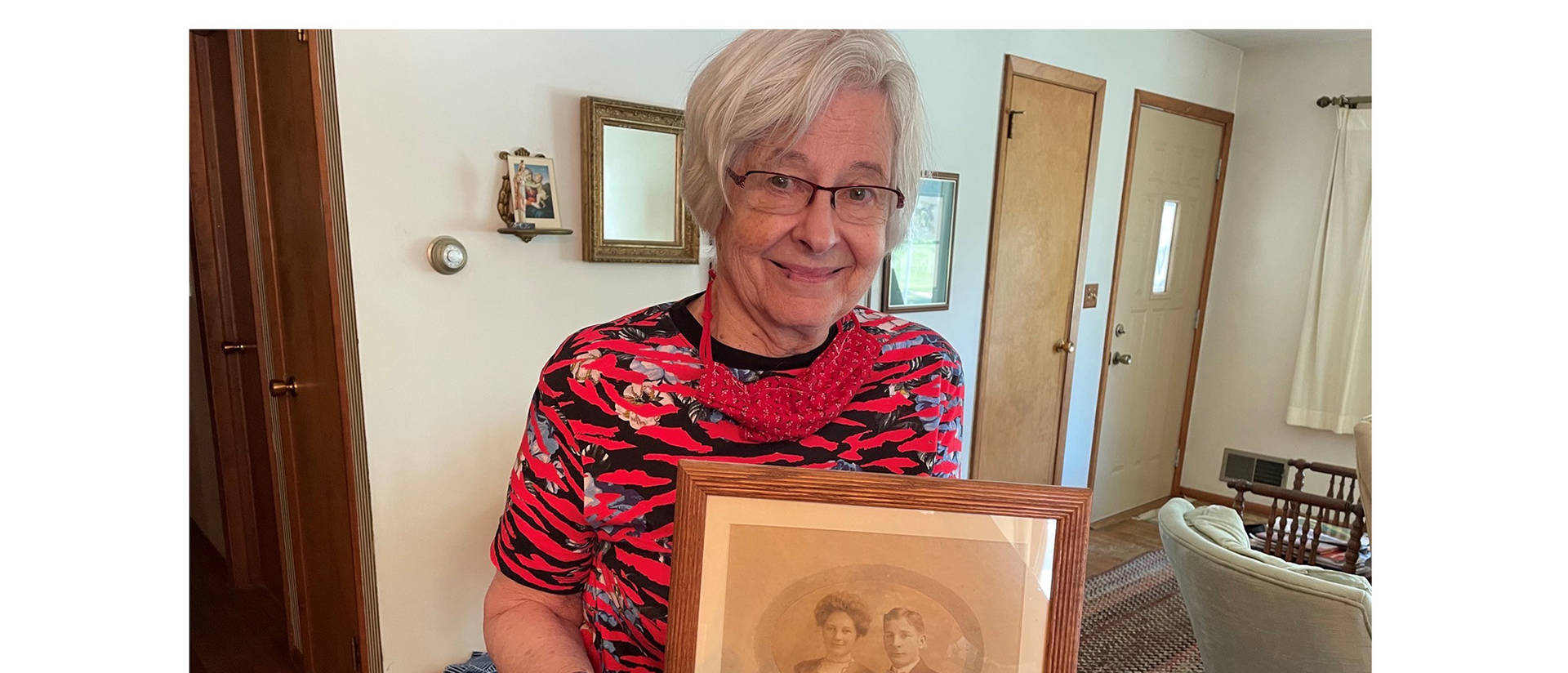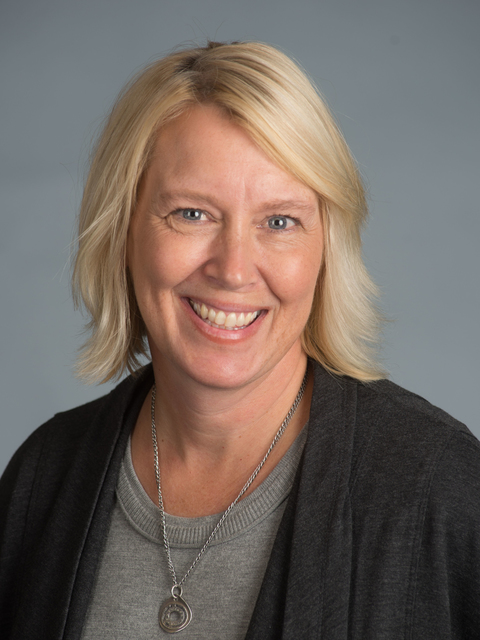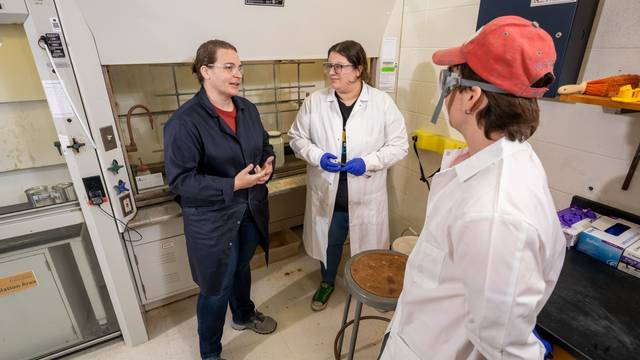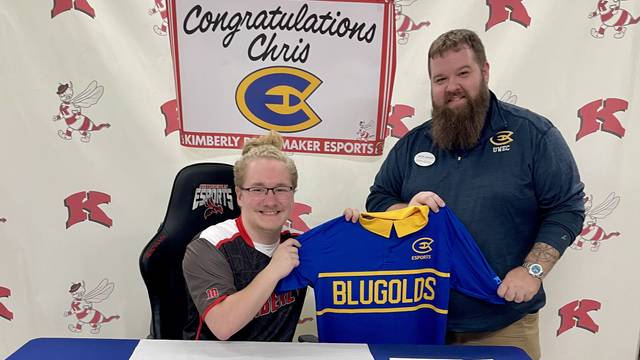Photo caption: Alumna Kathryn Kidd Christenson is working with the UW-Eau Claire Foundation to donate a set of scrapbooks created by her aunt in the late 1920s that document events relating to Wisconsin’s prohibition era. UW-Eau Claire will digitalize the scrapbooks and then send the originals to the Wisconsin Historical Society. (Submitted photo)
Blugold scholars and others with an interest in Wisconsin history soon will have a new resource available to them thanks to a University of Wisconsin-Eau Claire graduate who is donating a family keepsake to her alma mater.
Kathryn Kidd Christenson is working with the UW-Eau Claire Foundation to donate a set of scrapbooks created by her aunt in the late 1920s that document events relating to Wisconsin’s Prohibition era.
The scrapbooks were created by Bess Kidd Dixon, who was married to Wisconsin Prohibition commissioner Roland Dixon. Years ago, the Dixons left the scrapbooks to Kathryn and her husband, the late Dr. Ronald Christenson, who also graduated from UW-Eau Claire.
“They are too valuable to throw away; I could never do that,” Christenson says. “I’ve been wondering for years where to donate them, who might be interested in them. Since it was the 18th Amendment that made Prohibition law, when I read about UW-Eau Claire’s Menard Center for Constitutional Studies, I knew I had found the right place for them.”
Documenting history
The scrapbooks include news clippings as well as posters and other memorabilia that relate to the last years of the Prohibition era in Wisconsin.
“These books will be 100 years old by the end of this decade,” Christenson says. “I’m so excited that people who are interested in researching Prohibition in Wisconsin will be able to use what’s in them. This is just one little part of Wisconsin history, but it’s an important and interesting part of the state’s story.”
Alcohol was banned in the U.S. during Prohibition, starting in 1920 when the 18th Amendment to the U.S. Constitution was ratified, and ending in 1933 with the ratification of the 21st Amendment.
As Wisconsin’s Prohibition commissioner in the late 1920s, Dixon was charged with ensuring the laws were enforced in the state, a difficult job given the rise in the illegal production and sales of liquor and the growing number of places people gathered to illegally consume it. Then, in 1929, Wisconsin repealed its law enforcing Prohibition, essentially putting Dixon out of a job.
“The scrapbooks capture an interesting period of time in Wisconsin history and U.S. constitutional history,” says Dr. Eric Kasper, professor of political science and director of the Menard Center. “We appreciate Kathryn recognizing their importance and bringing them to our attention. They will prove to be an invaluable resource to our students.”
Given the age of the scrapbooks, the Menard Center will work with UW-Eau Claire archivist Greg Kocken to digitize the materials in them, ensuring the content will be accessible to Blugolds and others with an interest. The physical scrapbooks then will be given to the Wisconsin Historical Society, where they can be preserved and used by an even wider audience, Kasper says.
The books document Dixon’s work as commissioner, which he began in January 1927 and continued until late 1929. They include news stories and artifacts about events relating to Prohibition, including everything from Dixon’s raids on businesses that were violating Prohibition laws to activists’ efforts to pass a referendum to end the state’s enforcement of those laws.
The scrapbooks offer a unique perspective because they focus on the work of the Wisconsin Prohibition commissioner, a focus not typically found in other resources relating to that time, Christenson says.
“The memories and stories that often are shared from that time are of the roaring ‘20s,” Christenson says. “The stories are usually from the side of people throwing parties and breaking the law. A lot of our impressions of the 1920s come from the people who disobeyed the laws — that’s what people hear and read about. You don’t hear stories from the perspective of my uncle, who was an enforcer of the laws.”
Christenson was surprised her aunt, who she describes as “a unique personality,” made the scrapbooks.
“It blows my mind that she did it because it was so not typical of her,” Christenson says. “When I was growing up, we spent a lot of time together. She was fun and had a lot of friends. But I never thought of her as being scholarly or highly organized. That she kept these scrapbooks shows how important his job was to her.”
While some clippings are from the Eau Claire Leader-Telegram, the books include stories and artifacts from many places. So, the scrapbooks reflect events from all over Wisconsin, Christenson says.
“I don’t know how she acquired it all,” Christenson says. “Many are from remote outlying parts of the state. Some tell stories about my uncle showing up unexpectedly in different places all over the state to make a raid on a place that was hiding liquor.”
Proud Blugolds
Working with UW-Eau Claire to ensure the scrapbooks are preserved is especially meaningful because the university has played such an important part in her life, says Christenson, who met her late husband while both were students there.
Kathryn, who grew up in Eau Claire, graduated from UW-Eau Claire in 1961 with an English major and minors in political science and speech. Ronald grew up in Chippewa Falls and graduated from UW-Eau Claire in 1959 with degrees in political science and history.
“Ron came to college thinking he would major in history and be a history teacher,” Christenson says. “I remember him saying that at Eau Claire he discovered the fun part of history — political science. He received a Woodrow Wilson Fellowship, the first UW-Eau Claire graduate to be awarded it. After that, political science became his passion.”
After earning a Ph.D., Ronald Christenson was a professor for many years at Gustavus Adolphus College in Minnesota, where he established the college’s political science department. Kathryn used her writing and public speaking skills in her own successful career.
While the couple lived in Minnesota for much of their adult lives and both worked at the college there, they maintained strong ties to the Chippewa Valley and to UW-Eau Claire.
It was at UW-Eau Claire that they found each other and discovered their shared passion for political science, Christenson says of she and her husband. It was their political science professor, Dr. Art Peterson, who “put two and two together and matched us up,” Christenson says.
“I was going to my mailbox when I heard Art’s voice calling me over because he had someone for me to meet,” Christenson says. “He fearlessly told us that he decided the two of us would marry each other, apparently based on the fact that both of us were doing well in his classes.”
It turns out their professor was right. Two years after he introduced them, they were married.
Her work in a college development office reinforced her belief that it’s important to support their alma mater, a place that helped shape their future careers and lives, Christenson says. Over the years, she’s made financial contributions to UW-Eau Claire, including to the renovation of Schofield Auditorium.
“One chair has a plaque on it with my name, and another has a plaque with Ron’s name,” Christenson says of the Schofield Auditorium renovation. “The last time I was on campus was to see the chairs. That was really important to me.”
So, when she learned about UW-Eau Claire’s Menard Center for Constitutional Studies, she was excited that the university continues to value studies in political science and the U.S. Constitution.
“Among the fields Ron taught was constitutional law,” Christenson says of her husband. “He was very interested in Supreme Court cases. It all just fits so perfectly with Eau Claire’s new center. I couldn’t be more pleased to be working with the center on the scrapbook project.”




